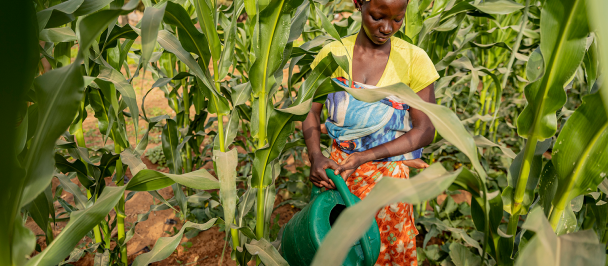One of the world’s biggest pineapple producing countries – Costa Rica – has officially adopted a widely endorsed action plan to tackle serious social and environmental concerns in this critical sector, worth US$ 800 million to the national economy.
Agrochemical run-off into water sources is a key issue that the plan will target. Efforts such as a certification scheme for people applying chemicals, new policies, plus better water quality monitoring near human settlements will be rolled out over the next five years. Meanwhile, the majority of Costa Rica’s pineapple producers are small-scale farmers who will gain support to improve their farming practices, making them more competitive and boosting their livelihoods.
“This is a long-term commitment to making the Costa Rican pineapple – something that is basically in every major fruit market in the world today – sustainable,” says Edgar Gutierrez Espeleta, Minister for Environment and Energy.
More than 900 people representing big buyers like Tesco and Walmart, small-scale producers, traders, consumers and civil society helped devise the plan between 2011 and 2014 and they are now committed to working together on rolling it out. This was part of a new approach led by the Government and fostered by the United Nations Development Programme (UNDP) through the National Platform for Responsible Production and Trade of Pineapple.
“When countries bring everyone who has a stake together like this to work out a national responses to critical issues in their commodity production, that’s when the real and lasting differences will be made,” says UNDP Resident Representative in Costa Rica, Alice Harding Shackelford.
The President of Costa Rica, Luis Guillermo Solis, signed a decree making the National Action Plan to Strengthen the Responsible Production and Trade of Pineapple from Costa Rica official last week.
“By doing this we are ensuring that Costa Rica remains a competitive agro-commodities exporting country because pineapple production will be sustainable and we will have the reputation as a sustainable producer, which makes good environmental and business sense,” says Luis Felipe Arauz,Cavallini, Minister of Agriculture and Livestock.
The actions will be applied over the next five years and a high-level monitoring committee made-up of government, civil society and business representatives will oversee the rollout.
The public will also be able to see progress on a new website to be launched soon. Costa Rica will become the first country to set up a transparent accountability system to inform the world about the social and environmental performance of its main commodity, as part of its efforts to remain competitive while still striving to achieve the Sustainable Development Goals.
“Costa Rica is the first country to devise and adopt such a national response and is now leading the way for other countries that are involved with UNDP’s Green Commodities Programme,” says Andrew Bovarnick UNDP’s Global Head of the Green Commodities Programme (GCP).
From 2000, Costa Rica’s pineapple industry began growing rapidly and by 2012 the country was among the world’s biggest exporters of pineapples. Concerns that this pineapple boom had outpaced the government’s ability to regulate it were realized when reports of dangerous chemicals seeping into water sources, devastating levels of soil erosion, and labour rights violations surfaced, damaging the country’s reputation as a producer. The actions seek to systematically address these critical issues over the next five-years, reducing poverty, protecting the environment and safeguarding an economically vital sector.

 Locations
Locations



